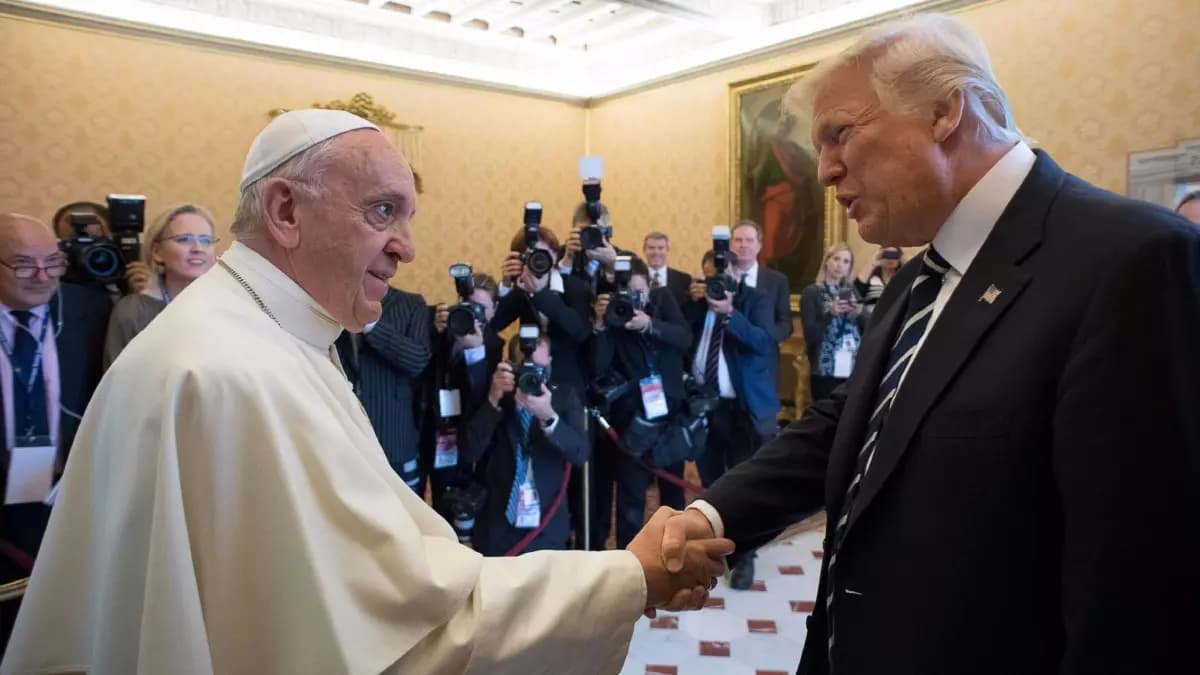OME – In response to the apparent assassination attempt against former United States President Donald Trump at a campaign rally Saturday, the Vatican on Sunday morning voiced concern, calling the incident a “wound” to democracy.
In a July 14 statement, the Holy See Press Office conveyed the Vatican’s “concern over the episode of violence last night, which wounds people and democracy, causing suffering and death.”
The Vatican, the statement said, is “united with the prayer of the United States bishops for America, for the victims, and for peace in the country, so that the logic of the violent never prevails,” it said.
The statement comes a day after an apparent assassination attempt on Trump, who served as US President from 2016-2020 and who is expected to be formally nominated as the Republican nominee in this year’s election cycle during the July 15-18 Republican National Convention in Milwaukee.
A series of gunshots rang out during a Trump campaign rally in Butler, Pennsylvania, leaving at least one person, identified in various media reports as a man, dead, along with the suspected gunman, while two other people were critically injured, according to a statement from the Secret Service.
The two injured persons were transferred by helicopter to Allegheny General Hospital in Pittsburgh, where they were reported to remain in critical condition.
Trump himself posted a note on social media indicating that he had been shot in the upper part of his right ear, while photos showed the former president, face bloodied, pumping his fist as the crowd cheered when he stood back up, surrounded by security personnel.
He was escorted off the stage by Secret Service agents, and shortly afterwards his plane departed from Pittsburgh, the closest major airport to the rally site.
Sunday morning, the FBI identified the shooter as a 20-year-old man from Bethel Park, Pa., named Thomas Matthew Crooks, but were not yet prepared to suggest a motive for the assault.
This is not the first time the Vatican, or a pope, has weighed in on an assault against a political figure.
In a Nov. 23, 1963, statement following the assassination of US President John F. Kennedy, Pope Paul VI said he was “shocked” by the news and “profoundly saddened by so dastardly a crime.”
“We deplore this unhappy event. We express the heartfelt wish that the death of this great Statesman may not damage the cause of the American people, but rather reinforce its moral and civil sentiments, and strengthen its feeling of nobility and concord,” the pope said.
Noting that Kennedy was the United States’s first Catholic president, Paul VI recalled having “discerned in him great wisdom and high resolution for the good of humanity” during a meeting at the Vatican and said a Mass would be celebrated for the repose of his soul and the comfort of his family.
In a June 5, 1968, statement during a general audience following the shooting of Robert Kennedy on the night of the US Democratic primary in California, and prior to learning of Kennedy’s death, Paul VI voiced sorrow at the incident, saying, “we deplore this manifestation of violence and terror and pray for the life and health of the men who are suffering in service to the public service of his country.”
After Kennedy’s death on June 6, Paul VI in his Sunday Angelus address that week said, “We would do well to remember his actions in favor of the poor, the dispossessed, the segregated, the need for urgent progress, and, in a word, social justice.”
In July 2022, Vatican Secretary of State Italian Cardinal Pietro Parolin signed a telegram on the pope’s behalf saying Francis was “deeply saddened” to learn of the assassination of former Japanese Prime Minister Shinzo Abe, who was shot dead while speaking at a campaign event for local candidates in Nara.
Other world leaders in addition to Pope Francis who have weighed in on the attempted assassination of Trump include heads of state from Ukraine, Hungary, Israel, Italy, Mexico, Ecuador, Canada, India, England, France, and Japan, among others.
Ukrainian President Volodymyr Zelenskyy, who had a 2019 phone call with Trump which generated controversy and contributed to Trump’s impeachment, said he was “appalled” by the incident, adding, “Never should violence prevail,” and voicing hope that “America emerges stronger from this.”
Mexican President Andrés Manuel López Obrador, who Trump once referred to as a leader “I like and respect,” in a social media post called the incident “irrational and inhumane,” while Israeli Prime Minister Benjamin Netanyahu, a close Trump ally, offered his prayers, saying he was “shocked.”
French President Emmanuel Macron, who after Joe Biden’s election victory in 2020 famously said “America is back,” said on social media that the assassination attempt “is a tragedy for our democracies. France shares the shock and indignation of the American people.”














